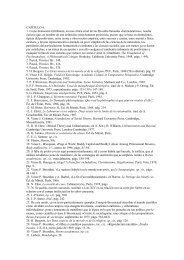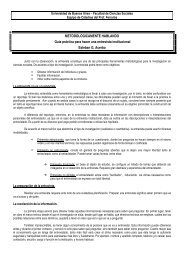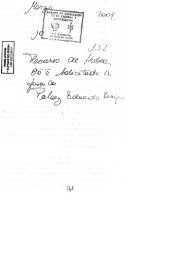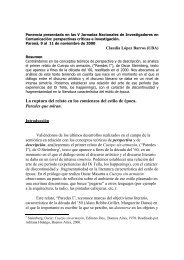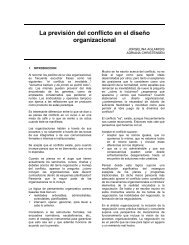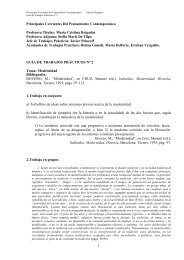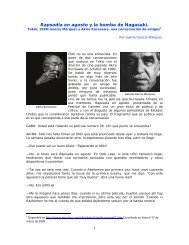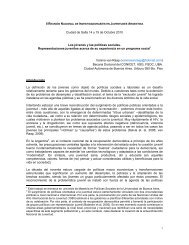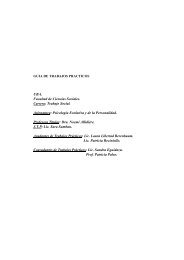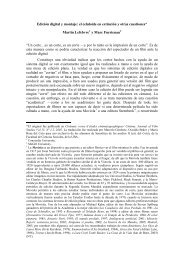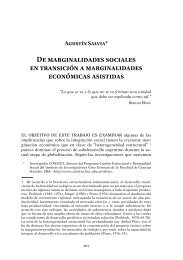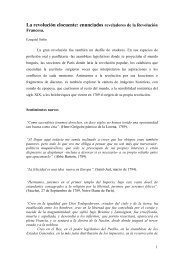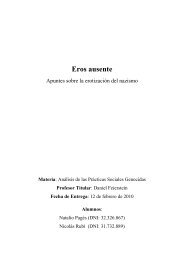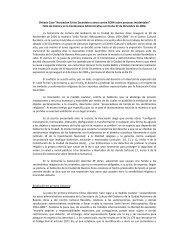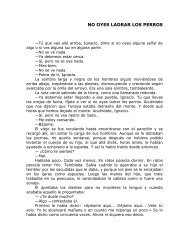Charisma Reconsidered
Charisma Reconsidered
Charisma Reconsidered
You also want an ePaper? Increase the reach of your titles
YUMPU automatically turns print PDFs into web optimized ePapers that Google loves.
10<br />
which there is authority without rules. But these are all negative characterizations.<br />
Is this all that the concept of charisma, in the end, can amount to? It seems so, for<br />
when we stray from the dramatic paradigm cases of individual leadership to those<br />
cases, such as ‘office charisma’, that involve an institution having a spiritual or<br />
sacralized aspect, the standard formulae that Weber himself uses to make sense of<br />
charisma, such as ‘success’ and ‘extraordinariness’, are rather inadequate. We can<br />
sense that there is some point to characterizing the phenomena in terms of<br />
charisma, but this grasp of the sacralized character of an activity matches<br />
awkwardly with the model of the individual charismatic leader.<br />
Consider a specific case that is a problem for Weber: the English jury<br />
system. The exercise of judicial authority in all legal orders is a highly charged and<br />
problematic moment. Very often it is authority over life and death itself. But in<br />
the jury system, ultimate power to produce justice is granted to a quite ordinary<br />
group of citizens seated in a jurors’ box. Nothing about these citizens is<br />
extraordinary, nor are they in any way ‘expert’. This is indeed a feature of their<br />
qualifications as jurors. Nevertheless their judgments are treated with extraordinary<br />
deference. If we were to say that the jury possesses charisma, a kind of<br />
specialized office charisma, this would solve a problem, that of the mysterious<br />
transformation of ordinary people into the privileged expression of authority over<br />
questions of justice – a transformation no less mysterious than the Eucharist itself.<br />
But Weber cannot and does not say this, and his comments on the jury system<br />
reflect the fact that it is a problem for his account. On the one hand, it is close to<br />
another ideal-type, the case of Kadi-justice, or irrational adjudication, which is<br />
itself the antithesis of rule-bound adjudication of either the modern rational-legal<br />
or the traditional type. Indeed, Weber uses exactly the same formula – ‘it is<br />
written, but I say unto you . . .’ – as a means of epitomizing both the ideal-type of<br />
Kadi-justice and charismatic leadership. However, the present charisma of the jury<br />
does not seem to derive from any past individual manifestation of charisma. It is<br />
not a residue of past charisma, preserved through a process of routinization, as<br />
past charisma is in the case of kingship, or the Eucharist itself, nor does the jury<br />
exercise divine powers, as with the Kadi. Weber in fact suggests that the jury as an<br />
institution derives from folk justice, which does not explain its sacralized ‘charismatic’<br />
features.<br />
This leads one to suspect the idea that individual charisma is fundamental,<br />
meaning that all other charisma is the product of routinization. It cannot possibly<br />
account for all of the residual cases and phenomena that Weber, as a consequence<br />
of the structure of his tripartite scheme of categories of authority, is forced to<br />
accommodate. And if we consider cases other than those Weber discussed, the<br />
problem is more severe. He is conspicuously silent about such phenomena as<br />
the divinization of the Roman Emperors, a clear case of sacralization of power<br />
rather than the routinization of charisma. Nevertheless, there does seem to be an<br />
approach, loosely based on Weber, that allows for a solution to this problem. The<br />
sacralization of power account that works in cases like the jury – the idea that<br />
JOURNAL OF CLASSICAL SOCIOLOGY VOL 3(1)



